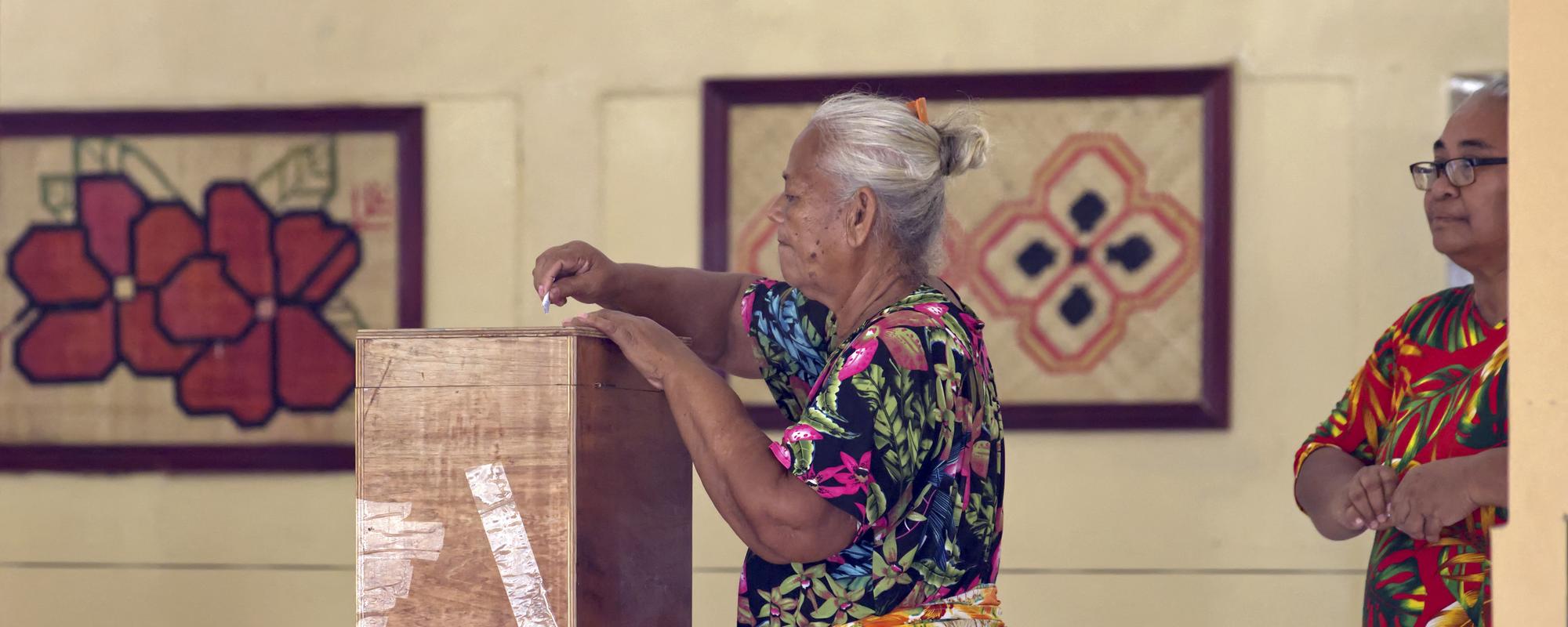
Over half of the 60 countries holding national elections this year are experiencing a democratic decline, risking the integrity of the electoral process, as reported in the latest Democracy Report from the V-Dem Institute at the University of Gothenburg. The worsening election quality is concerning, given the pivotal role elections play in either reinforcing or mitigating the trend of autocratization.
The wave of democratic backsliding, or autocratization, continues to be noticeable, according to the report. 42 countries are autocratizing, and 71 percent of the world’s population now live in autocracies – up from 48 percent ten years ago. There is a growing trend of threats against freedom of expression and the media, free and fair elections, and civil society organizations.
“The democratic recession is most noticeable in Eastern Europe and South and Central Asia, while Latin America and the Caribbean go against the global trend and instead see democracy levels increase. Hungary has seen the most rapid decline recently on democracy levels worldwide, while in Latin America, Brazil has completely turned around it’s autocratization process and is now one of the major democratizers,” says Professor Staffan I. Lindberg, Director of the V-Dem Institute.
Election integrity increasingly targeted
The report reveals a concerning global trend of declining quality of elections. The number of countries witnessing a decline in free and fair elections has more than doubled in the last four years, with 35 countries deteriorating. Moreover, governments in 24 countries are increasingly encroaching upon the autonomy of election management bodies. The erosion of election quality is particularly alarming as elections can either reinforce or counteract the autocratization trend.
Of over 60 countries holding national elections this year, 31 are worsening on their democracy levels, while only three are improving.
“Election management bodies’ autonomy is being undermined in 23 of the countries holding elections in 2024, including India with its 1.4 billion citizens. This year, when such a large share of the world’s population is voting, it is especially worrying that we see such an unprecedented decline in quality of elections during 2023.”
Among the 26 countries that lack notable declines or improvements in democracy levels in recent years, some upcoming elections, like the one in the United States, are also critical.
“Donald Trump’s previous term as president undermined American democracy, with attacks on media freedom, judicial independence, and executive oversight. His rhetoric and actions, from labeling opponents as ‘vermin’ to threatening the Department of Justice and journalists, set dangerous precedents. A second term for Trump could further jeopardize democracy.”
The fact that a majority of elections during the “super election year” of 2024 take place in such contested spaces makes this year likely to be pivotal for the future of democracy in the world.
The picture is not entirely bleak
Most democratic countries are stable, showing no significant deterioration in democracy levels. In 2023, 18 countries are democratizing, including Brazil, the fifth largest country in the world. Nine other countries are showing signs of improvements and could become potential democratic “bright spots” in the near future.
There is also a potential shift towards having more electoral democracies than electoral autocracies in the world. In 2023, electoral democracies outnumbered electoral autocracies for the third consecutive year.
“While there are not many positive signs for democracy in the world today, this may be one to take note of. However, a cause for worry is that this recent increase of electoral democracies is partly a consequence of liberal democracies backsliding,” says Staffan I. Lindberg.


